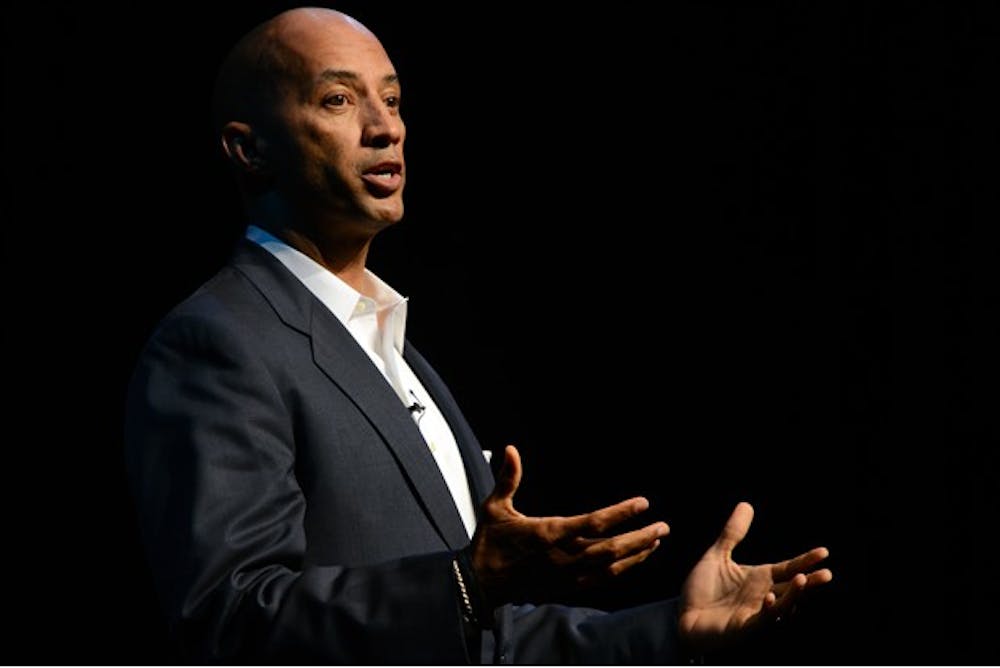He observed the terror definitive of 9/11, the remnants of the Tsunami that struck Indonesia in 2006 and the aftermath of Hurricane Katrina in New Orleans. During his 30-year career, he watched 49 people die.
"I make a living covering death, and I've seen it committed in most of its forms," said Byron Pitts, chief national correspondent for CBS Evening News, to a filled theater Thursday night. "And I'm OK with that because that's the choice I made professionally. What I'm not comfortable with is indifference."
Pitts has witnessed executions, stoning, shootings and suicide bombings, but he identified indifference as the deadliest weapon.
"We see what happens in this world when good and decent people stand on the sidelines," the journalist said.
Pitts spoke to Elon University staff, faculty and community members in McCrary Theater. His lecture, titled "We are Tough and Delicate Creatures," centered on New Orleans and related to the 2013 Elon Common Reading selection, "Zeitoun," by David Eggers.
Although he posited his observations in New Orleans hold universal truth, perhaps the title of the speech best describes Pitts himself. Although death and destruction characterize his reports, he demonstrated his persevering sense of humor, providing the audience with episodes of comic relief amid heart-wrenching anecdotes that illustrated the tenacious, yet fragile nature of humans.
Pitts referenced communities' responses following disaster to communicate the complexity of humanity. He described scenes of bodies scattered along I-10 winding into New Orleans and recalled a 19-year-old's insistence to remain at Ground Zero, listening to an individual trapped beneath the rubble on 9/11.
He delivered the audience narratives of the common man, but even Pitts' impressions of Presidents of the United States support the name of his lecture, he said.
"We are delicate creatures," Pitts said. "We are capable of many things."
During times of stress, people's worst qualities are exposed, Pitts said.
"Everyone of us in this room is capable of doing something awful," Pitts said. "I think that is human nature."
Limited resources, class conflict and the prevalence of discrimination cultivated a fearful environment in New Orleans, which provoked looting and corruption in the city following Hurricane Katrina. Nevertheless, such horrors run parallel to episodes of hope and dedication to service, he said.
"I don't think New Orleans is unique in that way," Pitts said.
In Indonesia and Haiti he found evidence of strength coupled with mortality.
Following the tsunami, Pitts returned to Pangandaran, Indonesia, where he found the remains of women with arms stretched overhead. He concluded these women elevated their children in an effort to save them. Years later, he saw the Haitian people's suffering met with determination. Surrounded by the destructive echo of the 2010 earthquake, a woman sang the Haitian national anthem, which narrates a story of people who have endured pain before and continued.
"We are incredibly strong, yes, but we are incredibly weak," Pitts said. "And history has shown us this."
For Pitts, reporting advances society toward optimism, cooperation and justice.
"I see my role as providing people with information so they can make better choices," he said. "History shows we will do the right thing when people are exposed to the right information.”


